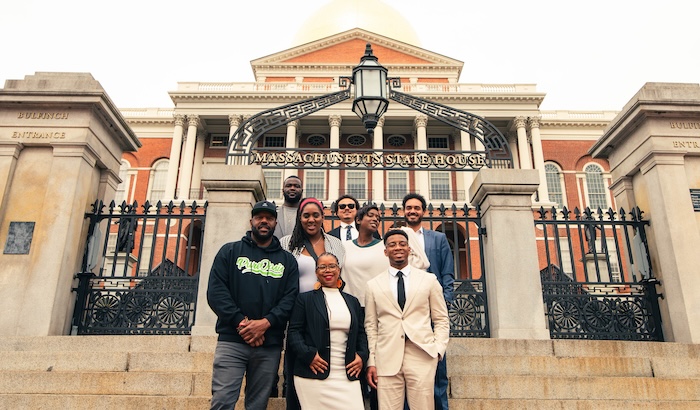
Massachusetts marijuana regulators back in negative light over whistleblower news segment, questionable enforcement priorities
I think I speak for everyone who follows the Bay State cannabis circus when I say, Holy fucking shit, what the hell happened this past week? Let’s walk it back …
You might say that this latest spate of noteworthy unfortunate events began on May 23, during that day’s public meeting of the Massachusetts Cannabis Control Commission. Following some business as usual as well as the applauded advancing of changes to microbusiness, delivery operator and delivery courier, and telehealth regulations, the congregation suddenly imploded in the third hour after Commissioner Kimberly Roy accused her colleagues of devising significant agency operating reassignments behind her back, creating “intense upheaval, discord, and instability within our staff” in the process.
At that same meeting, commissioners also discussed an upcoming Beacon Hill hearing on hemp regulation scheduled for June 11, and particularly what they might submit in their own testimony about hemp-derived products that get you high and have been readily available at liquor and convenience stores. Hemp regulation is largely outside of the CCC’s purview, but the state’s Department of Agricultural Resources is also skilled at making already difficult issues much worse, and in this case MDAR partnered with the Alcoholic Beverages Control Commission and Department of Public Health to preempt the aforementioned hearing and basically ban the so-called loophole products, also rocking the weed world last week.
The war on hemp may not specifically reflect poorly on the CCC, but the bombshell report published by WBUR at the end of last week sure did. Titled “Former women staffers allege they were bullied at embattled Cannabis Control Commission,” the article and audio segment detail “workplace bullying by the agency’s [former] communications chief.” It’s an important read, and further confirms the kind of working conditions that have been noted by blogger Grant Smith-Ellis, among others. One repeat agency bird-dogger, state Sen. Michael Moore, told the public radio station that “his office also separately received a complaint from a woman alleging a hostile work environment at the commission, and said that “while some applaud the seven-year-old agency for regulating a newly legal industry, ‘If you actually dig down and see what’s happening on the day-to-day from the people who are interacting with them—perception is not reality.’”
I’m inclined to share the first part of that sentiment—that many commissioners and their supporting staffers are miraculously scaling ski mountains in penny loafers and doing a solid job in multiple respects. Sadly, any big or small improvements, even in the face of insurmountable limitations and extreme public scrutiny, are frequently overshadowed by actions that suggest the agency works like the Department of Homeland Security’s sleeper cell network. On one hand, CCC members are hosting roundtable discussions with business owners and hearing their gripes; but with the southpaw, the Investigations and Enforcement Department swung a surprise late-Friday bulletin effectively unnerving vendors and participants in the upcoming Flower Expo, a B2B event this Wednesday in Greenfield. It’s the latest tragic and selective measure taken to the disadvantage of hundreds of businesses that are trying to stand out in a crowded market and make fresh connections, not to mention a reminder that we’re nowhere close to having protocols to actually host a licensed event with social marijuana consumption.
Amidst this whirlwind, we also dropped a doozy of our own last week about apparent alarming inefficiency at the CCC. My Talking Joints Memo feature, How Many People Work In Mass Cannabis? It Depends On Who You Ask, impugned the state’s lack of transparency around—and cumbersome organization of—industry worker data, as well as the commission’s burdensome employee badging system. We felt compelled to crawl around that rabbit hole, to piggyback Sen. Moore’s metaphor, because, well, Wasn’t a big part of legalization supposed to be about jobs? And, Shouldn’t we know more about who’s working in the industry and where?
Speaking of people who we haven’t seen—Commissioner Nurys Camargo wasn’t present at the last two CCC meetings, and spokespeople won’t say what that’s about. Meanwhile, suspended CCC Chair Shannon O’Brien is still engaged in a massively embarrassing protracted series of closed-door hearings with state Treasurer Deb Goldberg that will hopefully determine the former’s professional fate at the agency once and for all. Their next faceoff is on June 17. However it goes, and it’s unlikely we’ll find out what happened inside of their private deliberations for ages, if ever, judging by the way things have gone so far, I wouldn’t hold my pee waiting for a final decision, closure, or a denouement.
In regulated cannabis, everything takes ten times longer than it should. Last month, for example, the CCC issued fines to three companies for offenses committed as far back as four years ago. One of the transgressions, from 2021, stemmed from the theft of a single preroll. That’s what they’re using their minimal resources for? It’s utterly befuddling.
As a journalist and editor who writes about the CCC week in and week out, I try to recognize that most media coverage of weed is still overly sensational, with an underlying supposition that the industry is dangerous and deserves to fail, while important and positive stories that show regulator ingenuity tend to get overlooked. I also attempt to highlight the agency’s wins as well as its warts—and to discern between ordinary bureaucratic malfunctions, disconnected mini scandals, and outright interconnected impropriety.
All warts and wins considered, amidst the negative press deluge these past few days, I still feel comfortable saying that the commission appears to be increasing its productivity as well as its capacity; at the same time, it’s hard to see how its staffers are going to feasibly ski out of these woods in their loafers. On top of everything, commissioners have to deal with a lawsuit filed by a Martha’s Vineyard dispensary owner; while, as the WBUR story and ongoing O’Brien proceedings imply, there are also many past troubles to contend with—even as the CCC looks to the future with its search for a new executive director. Which is also taking forever.
I’ve published several columns just like this one about wild weeks at the commission, but right now, these past several days feel like some of the craziest so far.
They always do.

























